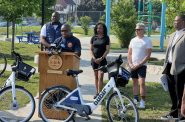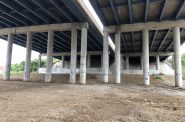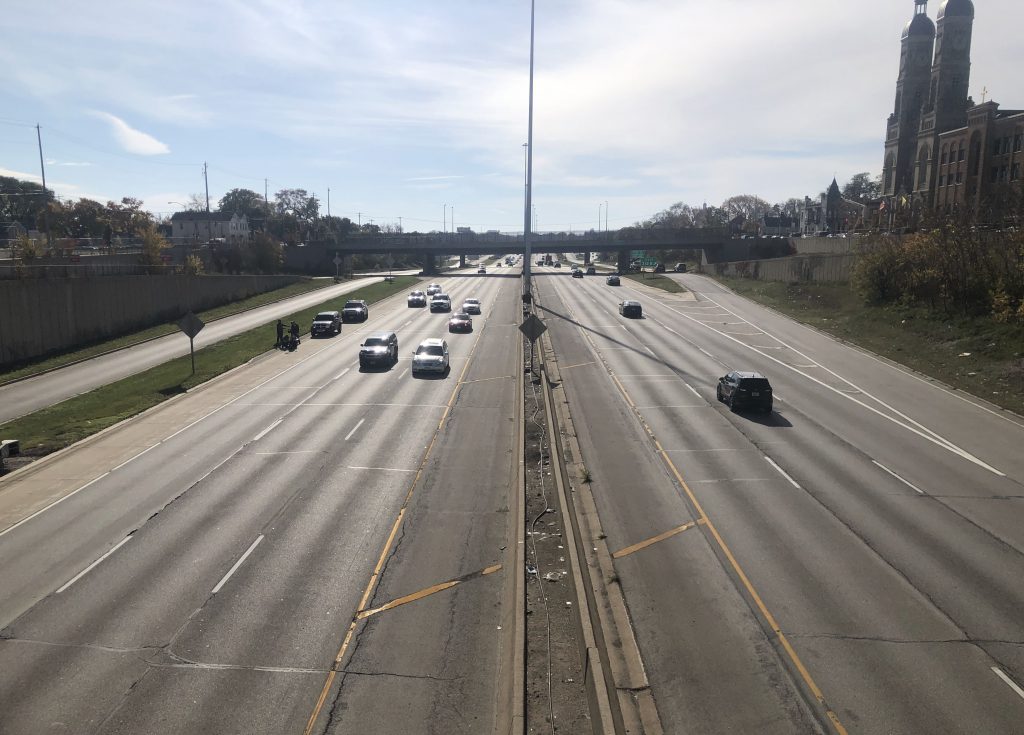Number of Super Commuters is Rising
All the city news you can use.
Every day at The Overhead Wire we sort through over 1,500 news items about cities and share the best ones with our email list. At the end of the week, we take some of the most popular stories and share them with Urban Milwaukee readers. They are national (or international) links, sometimes entertaining and sometimes absurd, but hopefully useful.
Houston Metro shelves important BRT corridor: Houston Metro has announced that it won’t be moving forward with its University Ave BRT project, leaving $1B in federal funds on the table citing financial impacts on current operations. The new Mayor, who appoints a majority of the Metro board has made a number of pro-car decisions of late and has been negative on any car lane removal. The project would have connected four universities and major destinations with the popular main street line. (Adam Zuvanich | Houston Public Media)
Collapsed road reveals housing issues: A mountain pass between Idaho and Jackson Hole Wyoming collapsed earlier this month severing the expensive city from people who work there. The road’s failure, which requires people to now drive 85 miles out of the way to get to work highlights a growing housing shortage and failure to build in Jackson Hole. (Molly Absolon | White Hall Ledger)
Supercommuter numbers increasing again: The number of super commuters is increasing as work from home policies allow workers to live further away from their jobs and commute in a few days a week. New research from Stanford University suggests super commuting, traveling more than 75 miles to work, has increased by 1/3rd. Commuting over 40 miles to work has increased from 15.8% to 18.5% of all commutes. (Andrew Dorn | The Hill)
Can tiny homes help combat homelessness? All over the country cities looking to reduce the number of homeless encampments are turning to constructing tiny homes to be an interim space between homelessness and being housed. Advocates don’t see them as humane, with the small sizes of the homes often causing consternation if roommates are required. Though some see value in the cramped quarters as a way to push people to make harder life decisions. (Ronda Kaysen | New York Times)
Banks finally realizing climate impacts on housing: Mortgage loan officers are starting to worry about climate change when lending money to home buyers, worried about the value of the housing used as collateral. At the same time, home insurance is harder to find as extreme weather events from hail to fires increase payouts and reduce industry profits. But lenders have also been slow to create solutions such as loans for hardening or moving to safer areas. (Chris Baraniuk | Wired Magazine)
Quote of the Week
It was really hard to work on-site at a property, especially for people with any compassion or humanity. Because we would survey all our tenants when they moved out to find out where they were going, and a lot of them would tell you they were moving back in with family. It seemed so unsustainable.
-Former revenue officer at Cortland Management who wished not to be identified in The American Prospect discussing the use of a algorithm to leave empty apartments open in order to make more money.
This week on the Talking Headways podcast we’re joined by Michael Batty, Professor of Planning at the University College London. We chat about his book The Computable City.
Want more links to read? Visit The Overhead Wire and signup.
If you think stories like this are important, become a member of Urban Milwaukee and help support real, independent journalism. Plus you get some cool added benefits.
Transportation
-
Milwaukee Reaches Mayor’s Protected Bike Lane Goal
 Jun 5th, 2025 by Jeramey Jannene
Jun 5th, 2025 by Jeramey Jannene
-
Green Infrastructure Improvements Planned for Southside Freeway Ramps
 Jun 3rd, 2025 by Jeramey Jannene
Jun 3rd, 2025 by Jeramey Jannene
-
Is the Highway Trust Fund Dead?
 Jun 2nd, 2025 by Jeff Wood
Jun 2nd, 2025 by Jeff Wood
Urban Reads
-
The Dark Roof Lobby is Winning
 Jun 8th, 2025 by Jeff Wood
Jun 8th, 2025 by Jeff Wood
-
Is the Highway Trust Fund Dead?
 Jun 2nd, 2025 by Jeff Wood
Jun 2nd, 2025 by Jeff Wood
-
Washington State Legalizes Woonerfs
 May 24th, 2025 by Jeff Wood
May 24th, 2025 by Jeff Wood























Super computers I will show my age WHY What are the doing to solve the most pressing issues of mankind violent behavior Just as the military is diversion so to is all the stuff about our phones etc It is a syphon of resources away from our basic needs of food housing social interaction and HEAT The concern was raising oceans and now OH Humans range of outdoor temperature is actually COLD as long as there is some warmth to grow food to 90 But after that all living is challenged so we can say that the range for human habitation is minus 20 F for a month or so to 90 F for a month or so. Hummm What some folk right here in “River City” are building and WHO PAYS???
Morning thoughts